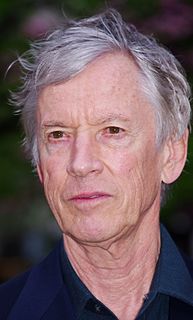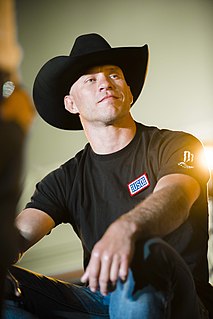A Quote by Anne Rice
I was at a loss suddenly; but conscious all the while of how Armand listened; that he listened in the way that we dream of others listening, his face seeming to reflect on every thing said. He did not start forward to seize on my slightest pause, to assert an understanding of something before the thought was finished, or to argue with a swift, irresistible impulse -- the things which often make dialogue impossible. And after a long interval he said, 'I want you. I want you more than anything in the world.
Quote Topics
After
Anything
Argue
Assert
Before
Conscious
Dialogue
Did
Dream
Every
Face
Finished
Forward
His
How
I Want You
Impossible
Impulse
Interval
Irresistible
Listened
Listening
Long
Loss
Make
More
More Than Anything
Often
Others
Pause
Reflect
Said
Seeming
Seize
Slightest
Something
Start
Suddenly
Swift
Than
Thing
Things
Thought
Understanding
Want
Way
Which
While
World
Related Quotes
I said if you want to be Keith Richards, you've got to listen to Bo Diddley and Chuck Berry. Then I thought, "What did Bo Diddley and Chuck Berry listen to?" I said, "They listened to Howlin' Wolf and Muddy Waters." Well who'd they listen to? They listened to Robert Johnson. I said, "Ok, we'll start with that."
He cleared his throat, "Zoe, i think you said you love me." "I did say it. I do love you with all my heart." "I see." There was a long pause, then he said, "For how long has this been going on?" "I don't know," she said, "Sometimes i think it started a long, long time ago." "You might have mentioned it." "I didn't want to encourage it," she said, "I thought it was a bad idea.
Listening is much more than allowing another to talk while waiting for a chance to respond. Listening is paying full attention to others and welcoming them into our very beings. The beauty of listening is that those who are listened to start feeling accepted, start taking our words more seriously and discovering their true selves.
You have to go with your instincts. I remember when I was about to make "Fistful of Dollars" a big article came out that said, "Italian Westerns are finished." I said, "Swell." Then, of course, the film came out, and it did something. I'm so glad for the dozens of times I haven't listened along the way.
I listened to classical music. I listened to jazz. I listened to everything. And I started becoming interested in the sounds of jazz. And I went to a concert of Jazz at the Philharmonic when we lived in Omaha, Nebraska, and I saw Charlie Parker play and Billie Holiday sing and Lester Young play, and that did it. I said, 'That's what I want to do.'
That one long scene in the Leftovers I have with David Gulpilil was seven pages long. When we finished it, Mimi Leder said, "I thought you were gonna do this in bits and pieces. You just did the whole thing." And I literally couldn't remember the scene. It wasn't that I was in a trance. I said, "Just keep shooting takes until you see what you want." In 48 years of acting, which is also how long I've been married, that had never happened to me.
"She (Minnie Ruth Solomon) was unusual because even though I knew her family was as poor as ours, nothing she said or did seemed touched by that. Or by prejudice. Or by anything the world said or did. It was as if she had something inside her that somehow made all that not count. I fell in love with her some the first time we ever talked, and a little bit more every time after that until I thought I couldn't love her more than I did. And when I felt that way, I asked her to marry me . . . and she said she would."
Long before I wrote stories, I listened for stories. Listening for them is something more acute than listening to them. I suppose it’s an early form of participation in what goes on. Listening children know stories are there. When their elders sit and begin, children are just waiting and hoping for one to come out, like a mouse from its hole.
I laughed but before I could agree with the hairdressers that she was crazy, she said, 'What's the world for if you can't make it up the way you want it?' " 'The way I want it?' " 'Yeah. The way you want it. Don't you want it to be something more than what it is?' " 'What'st eh point? I can't change it.' " 'That's the point. If you don't, it will change you and it'll be your fault cause you let it. I let it. And messed up my life.' " 'Mess it up how?' " 'Forgot it.' " 'Forgot?' " 'Forgot it was mine. My life. I just ran up and down the streets wishing I was somebody else.
I don't think there's anything less attractive than a man over-dyeing things on his face, so I'm going to try, for as long as I can, to age as my male forefathers before me. My father started getting grays when he was in his 30s, as did my grandfather before him, so I don't want to look perpetually young.
Bus stops are far more interesting and useful places to have art than in museums. Graffiti has more chance of meaning something or changing stuff than anything indoors. Graffiti has been used to start revolutions, stop wars, and generally is the voice of people who aren't listened to. Graffiti is one of those few tools you have if you have almost nothing. And even if you don't come up with a picture to cure world poverty you can make somebody smile while they're having a piss.





































